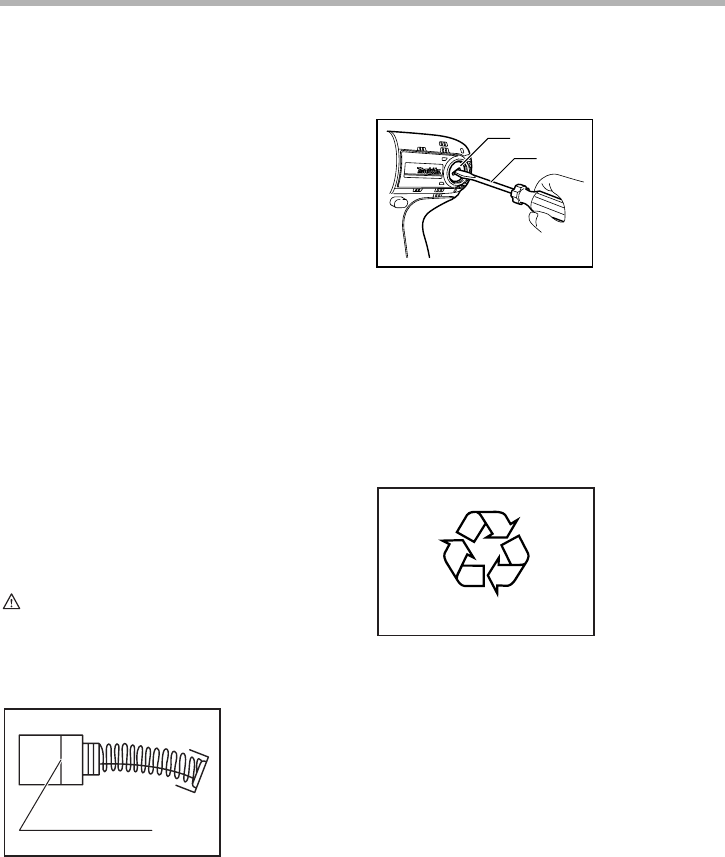
8
• If you tighten the screw for a time longer than
shown in the figures, the screw or the point of the
driver bit may be overstressed, stripped, damaged,
etc. Before starting your job, always perform a test
operation to determine the proper fastening time for
your screw.
The fastening torque is affected by a wide variety of fac-
tors including the following. After fastening, always check
the torque with a torque wrench.
1. When the battery cartridge is discharged almost
completely, voltage will drop and the fastening
torque will be reduced.
2. Driver bit or socket bit
Failure to use the correct size driver bit or socket bit
will cause a reduction in the fastening torque.
3. Bolt
• Even though the torque coefficient and the
class of bolt are the same, the proper fastening
torque will differ according to the diameter of
bolt.
• Even though the diameters of bolts are the
same, the proper fastening torque will differ
according to the torque coefficient, the class of
bolt and the bolt length.
4. The manner of holding the tool or the material of
driving position to be fastened will affect the torque.
5. Operating the tool at low speed will cause a reduc-
tion in the fastening torque.
MAINTENANCE
CAUTION:
• Always be sure that the tool is switched off and the
battery cartridge is removed before attempting to
perform inspection or maintenance.
Replacing carbon brushes
Remove and check the carbon brushes regularly.
Replace when they wear down to the limit mark. Keep
the carbon brushes clean and free to slip in the holders.
Both carbon brushes should be replaced at the same
time. Use only identical carbon brushes.
Use a screwdriver to remove the brush holder caps. Take
out the worn carbon brushes, insert the new ones and
secure the brush holder caps.
After replacing brushes, insert the battery cartridge into
the tool and break in brushes by running tool with no load
for about 1 minute. Then check the tool while running and
electric brake operation when releasing the switch trig-
ger. If electric brake is not working well, ask your local
Makita service center for repair.
To maintain product SAFETY and RELIABILITY, repairs,
any other maintenance or adjustment should be per-
formed by Makita Authorized or Factory Service Centers,
always using Makita replacement parts.
EN0001-1
Recycling the Battery
The only way to dispose of a Makita battery is to recycle
it. The law prohibits any other method of disposal.
To recycle the battery:
1. Remove the battery from the tool.
2. a) Take the battery to your nearest Makita Fac-
tory Service Center
or
b) Take the battery to your nearest Makita
Authorized Service Center or Distributor that
has been designated as a Makita battery
recycling location.
Call your nearest Makita Service Center or Distributor to
determine the location that provides Makita battery recy-
cling. See your local Yellow Pages under “Tools-Electric”.
1. Limit mark
1
001145
1. Brush holder
cap
2. Screwdriver
1
2
004912
Ni-Cd


















